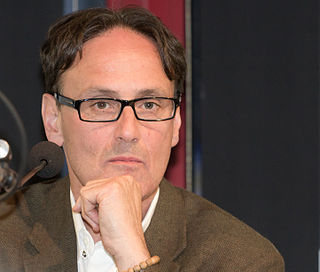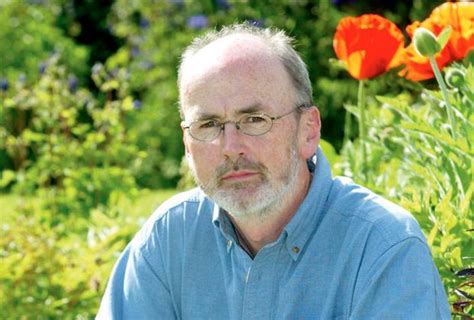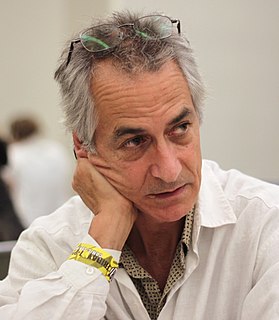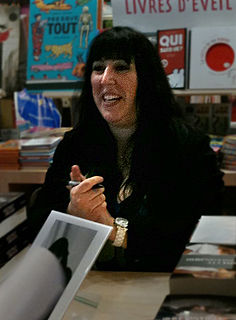A Quote by David Guterson
I write because something inner and unconscious forces me to. That is the first compulsion. The second is one of ethical and moral duty. I feel responsible to tell stories that inspire readers to consider more deeply who they are.
Related Quotes
There are three things we have to let go of. The first is the compulsion to be successful. Second, is the compulsion to be right-especially theologically right. (That's merely an ego trip, and because of this "need" churches split in half, with both parties prisoners of their own egos.) Finally, there is the compulsion to be powerful, to have everything under control.
I never have people tell me their stories. I usually have to figure them out myself. Because I know that if people tell me stories, they will expect them to be remembered. And I cannot guarantee that. There is no way to know if the stories stay after I'm gone. And how devastating would it be to confide in someone and have the confidence disappear? I don't want to be responsible for that.
My views on charity are very simple. I do not consider it a major virtue and, above all, I do not consider it a moral duty. There is nothing wrong in helping other people, if and when they are worthy of the help and you can afford to help them. I regard charity as a marginal issue. What I am fighting is the idea that charity is a moral duty and a primary virtue.
Well, it seems to me that there are books that tell stories, and then there are books that tell truths... The first kind, they show you life like you want it to be. With villains getting what they deserve and the hero seeing what a fool he's been and marrying the heroine and happy endings and all that... But the second kind, they show you life more like it is... The first kind makes you cheerful and contented, but the second kind shakes you up.
...You believe that the kind of story you want to tell might be best received by the science fiction and fantasy audience. I hope you're right, because in many ways this is the best audience in the world to write for. They're open-minded and intelligent. They want to think as well as feel, understand as well as dream. Above all, they want to be led into places that no one has ever visited before. It's a privilege to tell stories to these readers, and an honour when they applaud the tale you tell.
It was tricky [to write about Israelis], because everyone has an opinion about the Arab - Israeli conflict, and when I first started writing these stories, I was working for an Arab - Israeli human rights group. It was during the Second Intifada. It was this totally violent and intense time, and I think there's a part of me where I don't know how to write about that situation without getting my politics out of my messages, and that's something that was important for me not to do in this book.
I'm very grateful to be in a position now where I have a lot more control to tell the stories I want to tell. I feel no obligation to tell any one story. I will tell you my interest mostly lies in telling stories about empowered women, but I don't feel it's an obligation. But I do feel like I am servicing a voice.
I write my first draft by hand, at least for fiction. For non-fiction, I write happily on a computer, but for fiction I write by hand, because I'm trying to achieve a kind of thoughtless state, or an unconscious instinctive state. I'm not reading what I write when I wrote. It's an unconscious outpouring that's a mess, and it's many, many steps away from anything anyone would want to read. Creating that way seems to generate the most interesting material for me to work with, though.







































